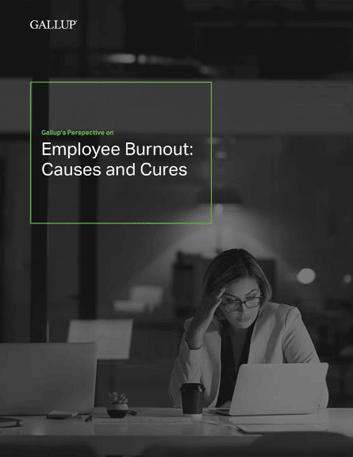Story Highlights
- Wellness is an important element of overall wellbeing
- Wellbeing encompasses employee mental health, physical health and more
- At least 85% of large employers offer workplace wellness programs
Wellness describes a healthy lifestyle beyond acute illness. It refers to a state of physical health in which people have the ability and energy to do what they want to do in life, without chronic suffering. Although wellness means something different at every stage of life, it's primarily supported through habits of eating, physical activity and quality sleep that lead to positive health outcomes.
Employers have recognized that they play an influential role in helping employees curtail unhealthy behaviors that can lead to costly chronic conditions. A RAND Corporation study found that the likelihood of providing some sort of workplace wellness program ranged from 85% to 91% among U.S. companies employing 1,000 people or more.
In recent years, employers have also realized the importance of employee mental health as a positive wellness outcome. Some insurance programs cover mental health services, and many employers include mental health services as part of their benefits package.
Wellbeing encompasses the broader holistic dimensions of a well-lived life. Although there are other definitions, Gallup's global research has found five elements of wellbeing that add up to a thriving life:
- Career wellbeing: You like what you do every day.
- Social wellbeing: You have meaningful friendships in your life.
- Financial wellbeing: You manage your money well.
- Physical wellbeing: You have energy to get things done.
- Community wellbeing: You like where you live.
As you can see, wellness is an important element of overall wellbeing. However, wellness is only one part of a thriving life. Consider someone who eats healthy and exercises regularly but has few friends and dreads going to work each day. Not only is this person struggling, but these chronic issues ultimately affect their physical health as well. For employers, the costs of poor employee wellbeing go far beyond insurance -- they ultimately impact employee engagement, productivity and performance.
Consider the following: Gallup has found that 4% of U.S. adults are thriving in physical wellbeing alone. Gallup compared these adults with those who are thriving in all five elements of wellbeing, controlling for age, gender, race/ethnicity, income, education, region and marital status. Compared with those who are thriving in all five elements, those who are only thriving physically:
- miss 68% more work each year due to poor health
- are about three times more likely to file a workers' compensation claim
- are five times more likely to seek out a new employer in the next year
- are more than twice as likely to actually change employers
Although physical wellness may seem to be the easiest to measure, it is clearly not the only driver of employee productivity and workplace satisfaction.
For employers, the costs of poor employee wellbeing go far beyond insurance -- they ultimately impact employee engagement, productivity and performance.
Moreover, simply offering a workplace wellness program -- no matter how well-intentioned -- provides no guarantee of improving employees' wellbeing. Workers must be aware the program exists and be persuaded to use it. While more than 85% of large employers offer a wellness program, Gallup research shows that only 60% of U.S. employees are aware their company offers a wellness program -- and only 40% of those who are aware of the program say they actually participate in it.
Of the companies that offer wellness programs, only 24% of employees are participating. Literature reviews on the efficacy of wellness programs show mixed results -- the impact depends highly on the quality and nuances of the program and, importantly, the underlying organizational culture.



